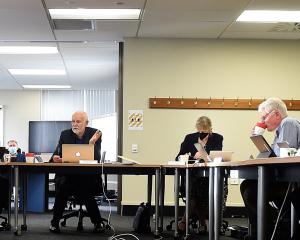Criteria for referring patients for abdominal and pelvic ultrasounds graded "non-urgent" are to be tightened by the Southern District Health Board in a bid to cut waiting times.
At the end of May, the waiting time was 34 weeks.
The board's aim is 12 weeks.
"The length of waiting time is unacceptable to both the referrers and to our department, and is associated with referrer, patient and radiology-staff frustration," the board's GP liaison newsletter states.
From July 1, GPs are asked not to refer for abdominal ultrasound the following complaints: femoral hernia, skin lumps, abdominal pain, bloating, reflux, indigestion, a change in bowel habit, or altered liver function tests with no concurrent illness.
For pelvic ultrasound, the following restrictions apply: post-coital bleeding in women under 45, painful menstruation, initial investigation of endometriosis, pelvic inflammatory disease, and investigation of polycystic ovaries.
Dr Tony Fitchett, of the Mornington Health Centre, said most of the complaints would not prompt him to send patients for ultrasound.
However, two things concerned him.
He had been involved with a case when an ultrasound in a woman under 45, with post-coital bleeding, had saved her life.
Sometimes, the only indication of cervical cancer was post-coital bleeding, he said.
Dr Fitchett said issues accessing other diagnostic procedures, such as colonoscopy, sometimes added to ultrasound referrals.
Another item he was concerned to see on the list was altered liver-function tests, for which ultrasound would be ordered if more than one test returned with changes.
Dr Fitchett, who had not heard about the changes until contacted, was not happy with the board's communication of the new guidelines, which are posted on its website.
GPs should be kept better informed, he said.
SDHB diagnostic and support services group manager Sonja Dillon said as well as being posted on the website, emails were sent about two weeks ago to GP practices, but not to individual GPs.
The guidelines were not "set in concrete" and the service wanted feedback from GPs.
No feedback had been received as yet, she said.
In clinical practice, GPs were able to use discretion.
"They are guidelines only and so, in instances where a referrer believes that a patient needs an ultrasound scan that doesn't meet the guidelines, then the radiologist welcomes discussion."
The guidelines were based on those in use at other district health boards.
Advertisement













